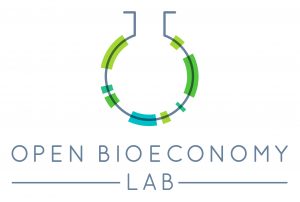Local Manufacturing of Enzymes
For The Multiplex Diagnosis of
Candidiasis and STIs
The advent of emerging, reemerging infectious and non-communicable diseases still remain major public health challenge globally. The current Covid-19 pandemic highlights the need for increased capacity in molecular testing techniques including Polymerase Chain Reaction (PCR), Single Nucleotide Polymorphism (SNP) analysis and Quantitative Real-time Polymerase Chain Reaction (qRT-PCR) for accurate diagnosis and surveillance in resource limited settings.
Most of the equipment and reagents for molecular diagnosis and research are not readily available in the local market hence need to be imported, making them expensive and their importation further hindered by transportation difficulties resulting in delays and the inability to maintain the cold-chain for temperature sensitive reagents like DNA polymerases used in PCR and Loop Mediated Isothermal Amplification (LAMP) reactions. The high cost of these reagents and equipment reduces interest in molecular related diagnosis and research in Ghana. However, the increase in public domain knowledge resulting from patent expiration has made more information available and increased the freedom to operate in exploiting low-cost options for molecular diagnostics making it possible to overcome the challenges of cost, access, transportation and storage through the local biomanufacturing of molecular biology reagents, such as enzymes.
The current study, sought to address the challenge of enzyme accessibility in Ghana including high cost, cold-chain issues, by expressing a high-fidelity DNA polymerase called Open Vent using the bacterium E. coli and packaged the enzyme as evaporated cellular reagent and subsequently demonstrated the use of these expressed non-purified enzyme in a proof-of-concept multiplex PCR diagnosis assay for identification of Candida albicans, Neisseria gonorrhoeae, Treponema pallidum and Trichomonas vaginalis. Gene encoding off-patent wild-type DNA polymerase from Pyrococcus in a pOBL plasmid backbone was obtained from the Open Enzyme Collection. This DNA was codon optimized for expression in E. coli and domesticated for common type II restriction enzymes used in DNA assembly. pOBL 1 plasmid containing the Open Vent gene was transformed into competent BL21(DE3) E. coli and subsequently induced with 0.1 mM IPTG. The expressed Open Vent DNA polymerase enzyme was packaged as cellular reagents and used to identify 4 pathogens which were clinically and laboratory confirmed to be Candida albicans, Neisseria gonorrhoeae, Treponema pallidum and Trichomonas vaginalis in a multiplex PCR reaction. Primers were design for gene targets ITS 1 and ITS 2 gene, AP65-1 adhesive protein, Tp47 and Cryptic Plasmid Protein B (CPP B) gene for Candida albicans, Trichomonas vaginalis, Treponema pallidum and Neisseria gonorrhoeae respectively. Experimental descriptive study design was employed for the assay design where data regarding enzyme activity, expressed protein, assay optimization for multiplex PCR and diagnostic efficacy of the multiplex PCR assay were all experimentally determined. Cross-section design was used for the proof-of-concept.
This study demonstrated the expression of non-purified Open Vent DNA polymerase enzyme compared with commercial Deep Vent DNA polymerase from New England Biolab to detect Candida albicans, Trichomonas vaginalis, Treponema pallidum and Neisseria gonorrhoeae targets in a multiplex PCR assay. The availability of the pOBL 1 plasmid and other related open-sourced plasmids makes it possible for other researchers to produce this enzyme locally without importing enzymes like DNA polymerase for PCR.
A presentation on the project is available here.






